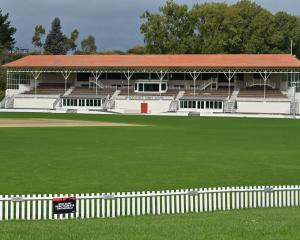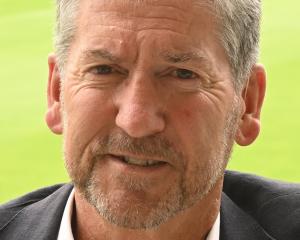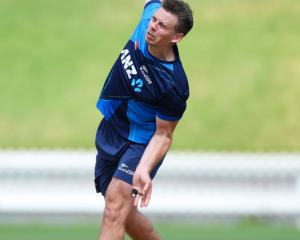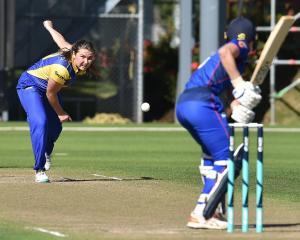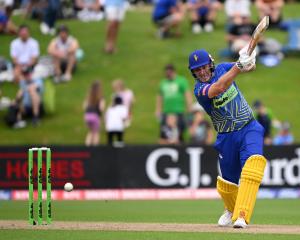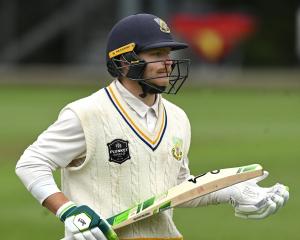
New Zealand Cricket released its home playing schedule yesterday and the University Oval will host two one-day internationals this summer.
Coggan has no concerns about the venue being in top shape in time for the international fixtures, but he is worried it may not be ready for the beginning of Otago's domestic season.
The Black Caps will host Pakistan in an ODI at the venue on January 13 and return on March 7 for another against England.
''In terms of those ODIs, we have no concerns,'' Coggan said.
''But long term, the city certainly has to look at what is played on there in winter and the impact it has.
''Our major challenge is to get the first Plunket Shield match played which is scheduled for November 15. The ODIs are not until January and March.''
Late last month, the Metropolitan Rugby Council match committee made the decision to transfer the Dunedin club rugby premier semifinals to Hancock Park after deeming the surface at the University Oval unsatisfactory.
The city is having its wettest year since 2010 and the wicket block has turned into a bog. It has been stripped bare.
''We are certainly challenged by the fact there is winter sport played on there.
''What we are going to have to do now, I would think, is actually grow grass from seed.
''If you don't get a massive burst of spring weather that is going to allow growth we are, in fact, putting at some level of risk the shield game mid-November.''
Pakistan is playing five ODIs and three twenty20 internationals on its New Zealand tour in January, while England will play two tests and five ODIs in February and March and will also compete in a T20 tri-series.
The West Indies is also touring New Zealand and will play two tests, three ODIs and three T20s.
The other notable feature of the home summer is the possibility of a historic day-night test between New Zealand and England at Eden Park, beginning on March 22.
NZC is hoping to join the movement towards night tests but its bid rests with the Auckland Council resource consent authority granting it permission to play night cricket at the venue on a Sunday night.
NZC chief executive David White is hopeful of receiving approval and believes the event would be a notable success if it went ahead as proposed.
''We think it's critical that we look to be innovative in this space and, also, that a test match championship is ratified by the ICC at its October meeting,'' he said.
''The test game needs to have more context, and be more relevant, especially for the younger generations coming through.''
The summer also includes a T20 tri-series involving New Zealand, England and Australia in February.
The final will be played at Eden Park on February 21 and could fall flat if the Black Caps fail to qualify.
It will be the first T20 tri-series contested by by full ICC members and includes three matches in Australia.
''The T20 Tri-series is something new and, for older fans, might rekindle memories of Australia's former world series matches - which so often included New Zealand,'' White said.
NZC is also hosting the ICC under-19 World Cup which starts on January 13.
Queenstown will host nine fixtures while games will also be played in Whangarei, Tauranga and Christchurch.
The West Indian women arrive in March and will play three ODIs and five T20s against the White Ferns. Details of dates and venues will be released in due course.


